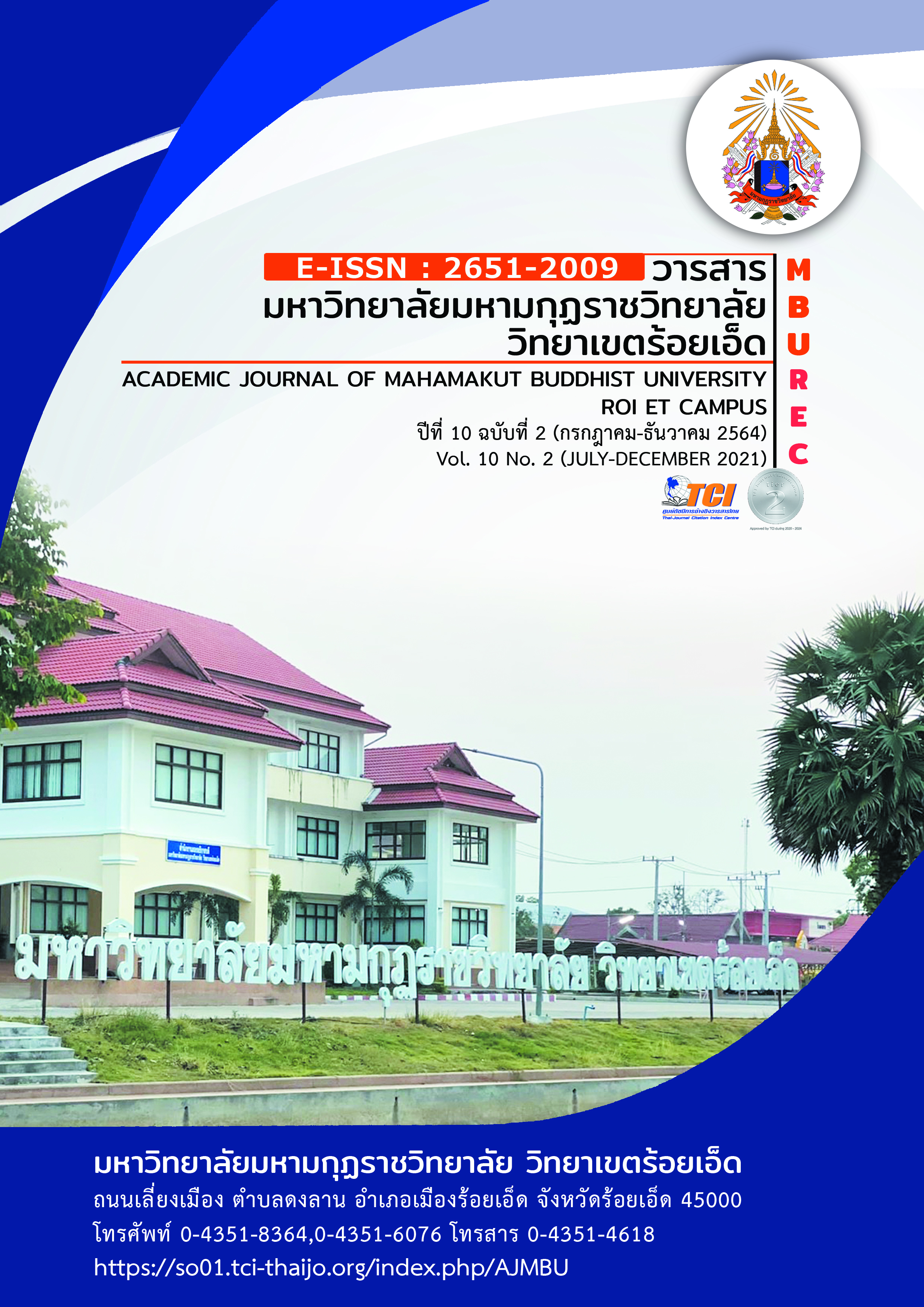The Development of a Problem Based Learning Management Teacher Development Program for Schools under the Office of the Secondary Educational Service Area 28
Main Article Content
Abstract
The objectives of the research article were 1) to study the current condition Desirable conditions and necessities of problem-based learning management for educational institutions. 2) To develop a teacher development program in problem-based learning management for educational institutions. The samples were used in this research administrators and teachers under the Office of the Secondary Educational Service Area 28, total 352 people and 5 qualified experts. Research instruments Questionnaire, interview form, program suitability assessment questionnaire. The data were analyzed by a percentage, mean and standard deviation. Analyze the information from the interviews by ourselves. The analysis of the information summarizes the content, the focus is the essay.
The result of this research found that: 1. The current state of problem-based learning management found that overall was at a moderate level. And desirable condition, problem-based learning management was found that the overall level was at a high level. The essential needs of problem-based learning management were found to be in descending order: 1)knowledge synthesis, 2)understanding of the problem, 3)linkage and identification problems, 4)the implementation of studies and research, 5) the summary and evaluation of learning results. 2. Development of a teacher development program in problem-based learning management for educational institutions under the Office of the Secondary Educational Service Area 28. The program's components include 1)principles and reasons, 2)aims, 3)procedures, 4)development methods, 5)content, 6)evaluation. The development of a teacher development program in problem-based learning management for educational institutions consisted of 5 components, 26 indicators: 1)linkage and problem identification, 2)understanding of problems, 3)aspects of educational implementation research, 4)knowledge synthesis 5)summary and evaluation of learning outcomes. The results of assessing the appropriateness of the teacher development program development in problem-based learning management were found that the overall suitability was at the highest level.
Article Details
References
กระทรวงศึกษาธิการ. (2552). เอกสารประกอบหลักสูตรแกนกลางการศึกษาขั้นพื้นฐาน แนวปฏิบัติการวัดและประเมินผลการเรียนรู้. กรุงเทพมหานคร : ชุมนุมสหกรณ์การเกษตร แห่งประเทศไทย จำกัด.
ชุติมา ราชปัญญา. (2562). การพัฒนาโปรแกรมพัฒนาครูในการจัดการเรียนรู้ที่เน้นภาระงาน(TBL) สำหรับสถานศึกษา สังกัดสำนักงานเขตพื้นที่การศึกษามัธยมศึกษา เขต 24. วิทยานิพนธ์การศึกษามหาบัณฑิต สาขาวิชาการบริหารการศึกษา. คณะศึกษาศาสตร์ : มหาวิทยาลัยมหาสารคาม.
ธนากร วงศ์ศรีเผือก. (2563). การพัฒนาโปรแกรมเสริมสร้างการจัดการเรียนรู้ของครูเพื่อส่งเสริมการคิดอย่างมีวิจารณญาณของนักเรียนในโรงเรียนประถมศึกษา สังกัดสำนักงานคณะกรรมการส่งเสริมการศึกษาเอกชน. วิทยานิพนธ์การศึกษาดุษฎีบัณฑิต สาขาวิชา การบริหารและพัฒนาการศึกษา. คณะศึกษาศาสตร์ : มหาวิทยาลัยมหาสารคาม.
มัญชลี เปี่ยมดี. (2563). การพัฒนาโปรแกรมการจัดกิจกรรมพัฒนาผู้เรียนของครูเพื่อเสริมสร้างทักษะชีวิตของนักเรียนในโรงเรียนมัธยมศึกษา สังกัดสำนักงานคณะกรรมการการศึกษาขั้นพื้นฐาน. วิทยานิพนธ์การศึกษาดุษฎีบัณฑิต สาขาวิชาการบริหารและพัฒนาการศึกษา. คณะศึกษาศาสตร์ : มหาวิทยาลัยมหาสารคาม.
สำนักงานเลขาธิการสภาการศึกษา. (2551). การจัดการเรียนรู้แบบใช้ปัญหาเป็นฐาน. กรุงเทพมหานคร : กระทรวงศึกษาธิการ.
สำนักงานคณะกรรมการการศึกษาแห่งชาติ. (2545). พระราชบัญญัติการศึกษาแห่งชาติ พ.ศ. 2542 (ฉบับที่ 2). กรุงเทพมหานคร : พริกหวานกราฟิก.
สิทธิพล อาจอินทร์. (2554). การพัฒนารูปแบบการจัดการเรียนรู้ที่เน้นการคิดวิเคราะห์ กลุ่มสาระ การเรียนรู้วิทยาศาสตร์. วารสารมหาวิทยาลัยขอนแก่น. 16(1). 72–82.


